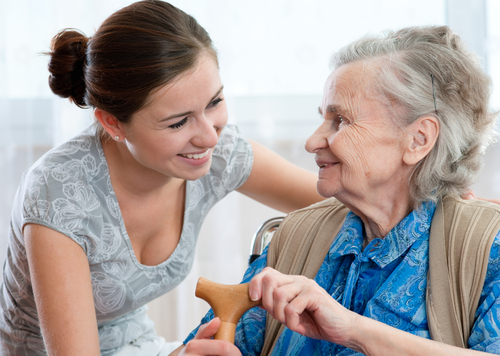Since 2020, it’s estimated there are 13.6 million people caring for someone through the pandemic. Many carers are juggling other work, while others have had to give up their job
Every day another 6,000 people take on a caring responsibility – that’s according to the charity Carers UK. The pandemic saw many of us take on the role of carer, either for a family member or friend.
Because of how demanding caring can be, lots of people are forced to leave their jobs. In a survey, Carers UK found that 600 people give up work every day to look after someone.
What financial support is available?
The main benefit for carers is Carer’s Allowance which is worth £67.60 a week, with a £10 Christmas bonus (2021-22). To qualify we must:
- look after someone who gets a qualifying disability benefit (more info on this here)
- look after that person for at least 35 hours a week
- be aged 16 or over
- not be in full-time education
- not earn over £128 a week (after deductions)
- be a UK resident
If we meet all of these conditions but receive other benefits such as a state pension, the amount of Carer’s Allowance we are entitled to may be affected.
During the pandemic, the government introduced extra measures to Carer’s Allowance, including making emotional support count towards the 35 hours a week minimum. The measures have been extended until the end of August 2021 – it’s worth checking this page for regular updates.
Also, if we live in Scotland we may be entitled to an additional payment called the Carer’s Allowance Supplement. More info on that here.
How do I apply?
If you are applying for Carer’s Allowance for the first time, take a look at these tips from Carers UK.
What other help is available?
Many of us who care for a loved one have reported feeling lonely or isolated. We can get help from the following organisations:
Carers Trust has a network of partners around the UK – simply enter your postcode and find out what local support is available near you.
Mobilise offers free support calls, online group coaching sessions, podcasts and an online chat (‘Big Conversation’ cuppa) for unpaid carers. Check out their website for more details.
If the person you care for has a disability, they may be able to apply for funding or a grant. Check out disability-grants.org
It’s also worth checking the government’s guidance for people who provide unpaid care.




